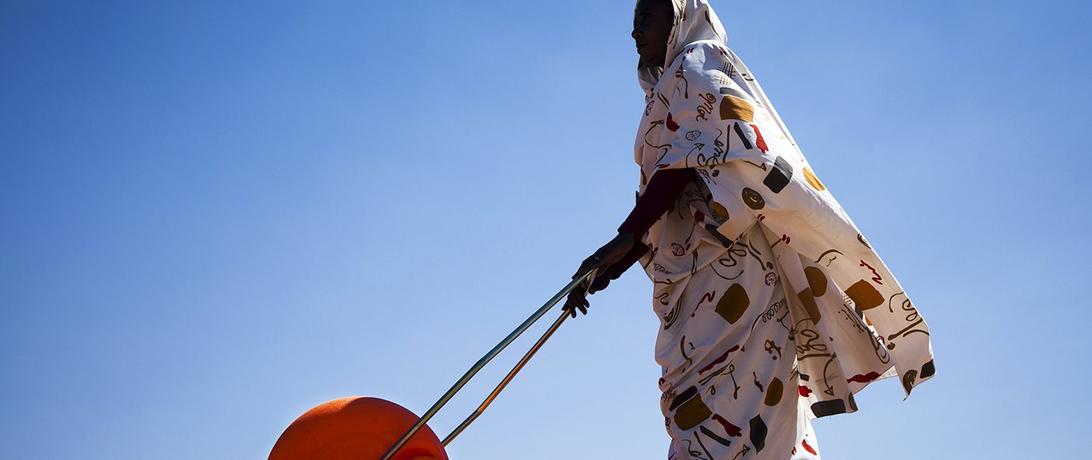The recent much-more-than-inclement weather has brought discussions on climate change and environmental protections to the forefront. Worldwide, states have been hit by devastating storms—from Hurricane Irma here in the United States, to sweeping mudslides in Freetown, Sierra Leone, which left an estimated 800 dead and 7,000 displaced.
As with political and cultural-based conflict, environmental threats impact women, men, girls, and boys differently. Water scarcity, having long been declared an overarching threat to international peace and security by the United Nations Security Council, has particularly concerning gendered aspects, as, according to UN Water, it “can lead to a double hardship for women,” given that women and girls “may have to travel longer distances to obtain water, and conditions are more dangerous.”
As highlighted in a recent blog post from the Global Water Programme at the International Union for Conservation of Nature (IUCN), this year’s World Water Week comes at a strategic time. The week-long meeting, held in Stockholm and convened by the Stockholm International Water Institute (SIWI), provided water experts, policy-makers, and development experts the opportunity to ensure that vital water protection programs get the support and attention they so desperately need
One initiative in particular caught our eye: a jointly presented webinar series entitled “Gender Analysis and Mainstreaming in International Waters Project.” The series is being presented by the United Nations World Water Assessment Programme of UNESCO (WWAP), and the World Wildlife Fund (WWF), and will include additional webinars throughout the remainder of 2017, and into 2019. Ultimately, the series aims to provide information about the use of a Water & Gender Toolkit, the importance of collecting sex-disaggregated water data, and practical information and instructions on best practices in collecting said data.
These trainings are a vital next step towards closing the climate-related gender gap. As identified by the World Resources Institute, the “dearth of nationally collected, sex-disaggregated data leads to misidentification and underestimation of the gendered nature of this issue, causing it to be left out of discussions on water and food security.” By providing the skills and training necessary to start collecting the right kind of data, in the right way, states will be able to take powerful steps forward in safeguarding women’s agency, including in the face of extreme natural disasters.
The first webinar, “Collecting Sex-Disaggregated Water Data” is available to watch on YouTube.
